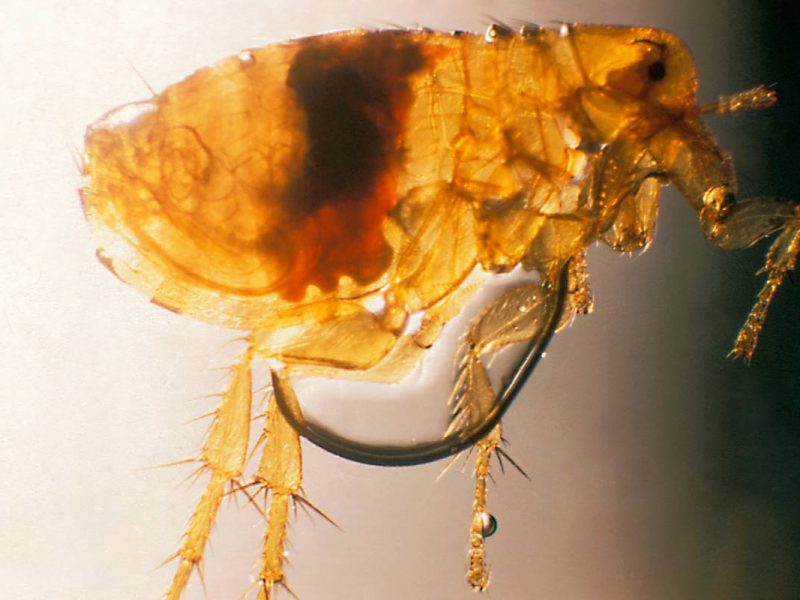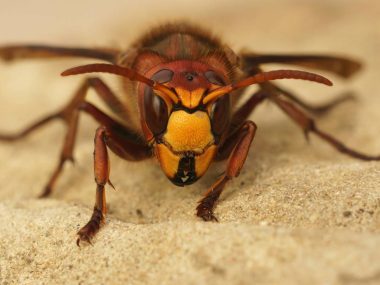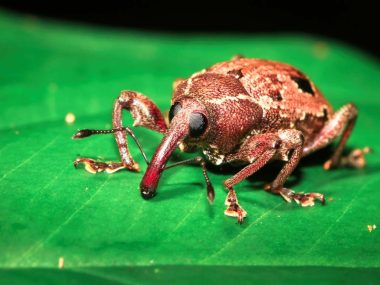Fleas are tiny, persistent pests that can cause a range of problems for both humans and animals. Often associated with pets, fleas can also affect homes, yards, and even businesses. While these parasites might seem like a minor nuisance at first, their potential for causing health issues, damage, and distress makes them a significant concern.
In this article, we will explore the dangers of fleas and how expert pest control services can help you tackle a flea infestation effectively.
What Are Fleas?
Fleas are small, wingless insects that rely on the blood of mammals and birds to survive. They are typically brown or reddish-brown in colour, with flattened bodies designed to navigate through animal fur or feathers. Fleas are excellent jumpers and can leap great distances relative to their size, which helps them move from host to host.
Adult fleas measure around 1 to 3 millimetres in length, and although they don’t have wings, their powerful hind legs enable them to jump up to 200 times their body length. Fleas can reproduce rapidly, and a single female can lay hundreds of eggs during her lifetime. The eggs fall off the host animal, settling in bedding, carpeting, and other areas where pets frequent. This makes it easy for fleas to spread through homes and environments.
The Dangers Fleas Pose
While fleas are often associated with pets, such as dogs and cats, they can cause a variety of problems for humans, pets, and even the environment. Below are the primary dangers of fleas.
1. Health Risks to Humans
Fleas are more than just an itchy inconvenience. They are known to transmit several diseases, some of which can be serious. The two most concerning diseases spread by fleas are:
- Bubonic Plague: Fleas are notorious for their role in spreading the bubonic plague, one of the deadliest pandemics in history. Though rare today, it is still a potential concern in certain areas. The plague is caused by the bacterium Yersinia pestis, which fleas carry from infected rodents to humans. Symptoms include fever, swollen lymph nodes, and fatigue.
- Murine Typhus: This bacterial infection is transmitted by fleas that have fed on infected rodents. It is characterized by fever, headaches, muscle aches, and rash. While not as fatal as the plague, murine typhus can cause significant illness if left untreated.
- Tapeworms: Fleas can also carry tapeworm larvae, which can infect pets and humans. When a pet or human accidentally swallows a flea, the larvae can develop into adult tapeworms in the intestines. Tapeworms can cause digestive problems, weight loss, and discomfort.
- Allergic Reactions: Flea bites can trigger allergic reactions in some people and animals. Flea allergy dermatitis (FAD) is a common condition in pets, especially in dogs and cats. In humans, flea bites can cause redness, itching, and swelling. For those with sensitive skin or allergies, the bites may result in more severe reactions.
2. Health Risks to Pets
Fleas are particularly harmful to pets, especially when infestations are not promptly addressed. Aside from the discomfort caused by flea bites, pets are at risk for several health issues:
- Flea Allergy Dermatitis (FAD): As mentioned, FAD is an allergic reaction to flea saliva. Pets affected by FAD may experience intense itching, hair loss, sores, and skin infections. This condition can lead to a vicious cycle of itching and scratching, worsening the pet’s overall health.
- Anaemia: Fleas feed on the blood of pets, and in severe infestations, they can cause significant blood loss. This is especially dangerous for young or elderly animals, leading to anaemia (a reduction in red blood cells), which can cause fatigue, weakness, and, in extreme cases, death.
- Fleas as Vectors for Disease: Just as fleas can transmit diseases to humans, they can also spread parasites like tapeworms, as well as bacteria and viruses, among pets. If left untreated, flea-borne diseases can lead to long-term health problems for your pets.
3. Damage to Property and Environment
Fleas not only pose health risks to humans and pets but can also cause damage to your home. Flea eggs and larvae can infest carpets, upholstery, bedding, and even wooden floors. Over time, this can lead to:
- Contaminated Bedding and Furniture: Fleas lay their eggs in warm, dark areas such as pet bedding, couches, and carpets. Once the larvae hatch, they can further infest your living spaces, making it difficult to fully eradicate the problem without professional intervention.
- Persistent Infestations: Fleas reproduce quickly and can remain dormant for long periods. Even if you treat your pet, you may still have fleas in your home if their eggs and larvae are left untreated. This can lead to a persistent infestation, making it harder to control.
How Can Expert Pest Control Help with My Flea Problem?
Given the potential risks associated with fleas, it’s important to take quick and effective action if you discover a flea infestation in your home. While there are many DIY methods available, professional pest control services offer several advantages for dealing with flea problems.
1. Comprehensive Inspection
Expert pest control companies start with a thorough inspection of your property. They will check your pets, furniture, carpets, bedding, and any areas where fleas may be hiding. They can also assess whether there are signs of other pests, such as rodents, which can contribute to flea infestations. A comprehensive inspection ensures that no areas are overlooked and that the entire property is treated.
2. Targeted Treatment Plans
Pest control professionals use a variety of methods to treat flea infestations, including chemical and natural treatments. They can provide a targeted approach that focuses on all stages of the flea life cycle – from eggs and larvae to adult fleas. This multi-step approach ensures that fleas do not re-emerge after treatment.
- Flea Bombs or Foggers: These are often used to treat large areas of the home. Professional-grade flea bombs are designed to penetrate hard-to-reach areas where fleas might be hiding.
- Topical Treatments for Pets: Expert pest control services will often work with you to treat your pets with safe, effective flea treatments that can eliminate fleas quickly and prevent reinfestation.
- Vacuuming and Steam Cleaning: Pest control technicians may also recommend additional cleaning methods, such as steam cleaning carpets and vacuuming to remove flea eggs, larvae, and adult fleas.
3. Preventative Measures
Once the flea infestation is under control, professional pest control services can help prevent future problems. They may recommend ongoing treatment for your pets, regular inspections, and advice on maintaining a flea-free environment. For example, they can provide guidance on how to manage your pet’s outdoor environment and reduce the chances of fleas being brought into your home.
4. Peace of Mind
Perhaps one of the greatest benefits of hiring an expert pest control service is peace of mind. Fleas can be difficult to control on your own, especially when you are dealing with a persistent infestation. A professional pest control service has the knowledge, experience, and tools to effectively eliminate fleas and prevent them from coming back. Their expertise ensures that the treatment is safe for your pets, family, and home, minimizing the risk of exposure to harmful chemicals or ineffective DIY treatments.
Conclusion
Fleas are more than just a nuisance. They pose significant health risks to both humans and animals and can cause extensive damage to your home. If you suspect a flea infestation in your home, it’s important to address it promptly with the help of expert pest control services.
By choosing a professional pest control company, you can ensure that your flea problem is handled thoroughly and effectively, helping protect the health of your pets and family, as well as the integrity of your home.
Don’t let fleas take over your living space—get expert help today!






